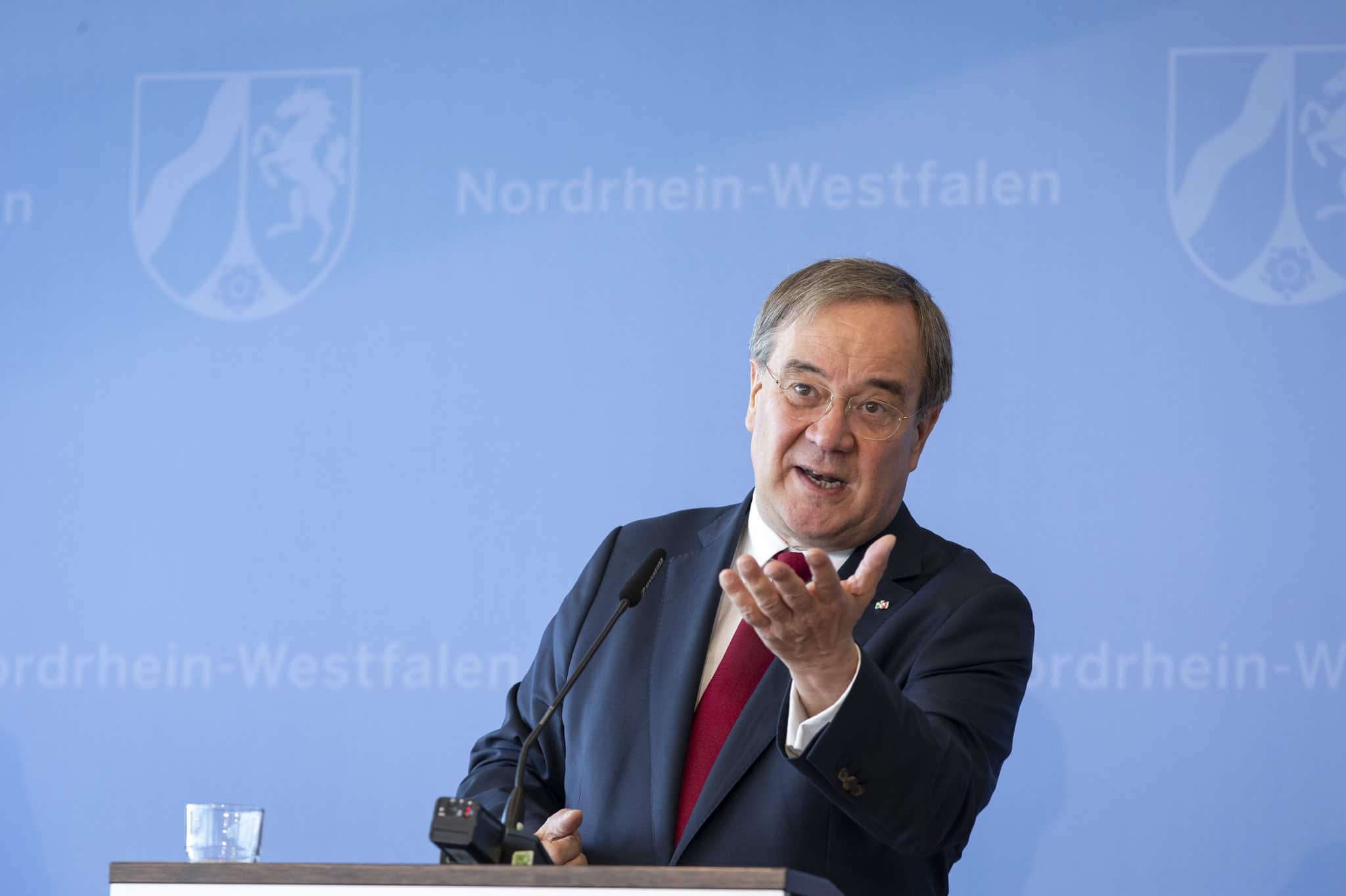The new leader of the Christian Democratic Union, which is perhaps the single most influential party in Europe, will inevitably steer the Old Continent’s policymaking away from the populist right. Formiche.net reached out to McAllister and Brok (CDU), as well as Alli (Atlantic Council) and Mauro (former defence minister) to delve deeper into the Italian effects of Armin Laschet’s election
David McAllister is a leading member of the Christian Democratic Union (CDU), the ruling German party. He is also Vice President of the most influential European party, the European People’s Party (EPP), as well as President of the European Parliament’s Foreign Affairs Committee.
In layman’s terms, Mr McAllister is a political force to be reckoned with. Want to know what he thinks the future has in store? Well, suffice it to say that his WhatsApp profile picture features him shaking hands with Joe Biden, the Democrat who will be sworn in on Wednesday as the new US President.
In an exclusive interview with Formiche.net, Mr McAllister mapped out what the election of Armin Laschet as new leader of the CDU means for Germany, for Europe, and by extension, what impact it will have on global geopolitics.
Mr McAllister welcomed Mr Laschet’s victory, before pointing out that he, though a strong candidate, might not become Chancellor this coming September, when Germany is set to choose Angela Merkel’s successor.
Elmar Brok, another authoritative member of the CDU, told Formiche.net that after September’s election his party is likely to ally with the left-leaning Greens. However, “[Mr Laschet] has also told all democratic parties that they must stand by and be ready to cooperate,” he added.
In truth, Mr Laschet is already shaping German politics, starting with his outright rejection of the German far-right, nationalist party, Alternative for Germany (AfD). “To us, AfD is a political adversary whose positions are opposed to our fundamental values,” said Mr McAllister.
“[Mr] Laschet has my full support when he says that we will face off against AfD and convince the German people that this right-wing populist party is giving simple answers – much too simple answers – to complex questions.”
The same reasoning is poised to be applied in the European Parliament via the EPP, where the CDU has one hand on the steering wheel. Mario Mauro, former Italian defence minister and PPE member, remarked that one of Mr Laschet’s fixed points is “the strength of the so-called cordon sanitaire, a sort of constitutional arc in the European Parliament to exclude the European far right forces from the game.”
It follows that Fidesz, the right-wing party of the illiberal populist Polish PM, Viktor Orbán, might not have a future in the EPP. And the future is uncertain for Italy’s right-wing League, headed by its populist leader Matteo Salvini, which posits it is ready to govern Italy but lacks credibility among liberal moderates.
The League belongs to ID, the same European party as AfD. As rumour has it, Mr Salvini is eyeing an EPP membership to polish his party’s political credentials. More moderate League members – starting from his second-in-command, Giancarlo Giorgetti – have been pushing relentlessly for this line, but the party’s line would have to take a step back from its bombastic populist rhetoric.
“[Laschet’s election] could paradoxically kickstart a real dialogue between the CDU, the EPP and the League,” noted Paolo Alli, member of the Alcide de Gasperi Foundation, non-resident fellow at the Atlantic Council and former President of NATO’s Parliamentary Assembly. “[Mr] Giorgetti’s wise work, though not anticipating a request to enter the EPP, has long been creating the conditions for this dialogue.”
However, argued Mr Alli, Mr Salvini should favour this process by exiting ID. “The German far right, which is not far away from the neo-Nazis, is unpopular with Ms Merkel as well as 90% of the German people.” Meaning that the League’s current European positioning is next to irrelevant.
On Tuesday the League appeared to be toeing that moderate line, when it finally condemned the arrest of the Russian government critic Alexei Navalny in the European Parliament. The day after, however, it took a step back by abstaining from voting for a condemnation of the attacks on Washington’s Capitol Hill, penned by none other than Mr McAllister. Attached to that motion was a line noting “the urgent need to defend democracy, human rights and the rule of law globally.”
In closing: centrist moderatism and the defence of (liberal) democracy is the path Mr Laschet will travel – right-wing populists be warned. By the way, Mr McAllister, Mr Brok and Mr Mauro all agreed that his political line will resonate with Mr Biden’s, especially when it comes to foreign policy.
“Traditionally, the CDU is the German party that most supports a strong Transatlantic collaboration,” remarked Mr McAllister. He cited shared democratic values, efforts to defend freedom, shared NATO membership and international cooperation as reasons why the EU and Mr Biden’s US will be effective partners on the international stage. That, and “many common positions on China.”
“I welcome President Biden’s announcement regarding an alliance of democracies and the return of the American administration to international organisations. With [former President Donald] Trump we have seen that as soon as America steps back, China is ready to fill the void.”
Mr McAllister summed up his (and, conceivably, Germany’s) recipe for China: “cooperation when possible, competition when there’s need for it, confrontation when necessary.” Respectively, he pointed to shared climate change objectives, fair competition, and the CDU’s critique of China’s human rights track record as examples.
It’s fair to say that Mr Laschet’s CDU will steer the EU, both internally and in foreign policy matters, in the same direction as Mr Biden’s US. “The West, intended not in the geographical but the philosophical sense, must send clear messages to China, Russia Iran, North Korea, Venezuela: we will defend democracy and the rule of law in the world,” quipped Mr McAllister.








